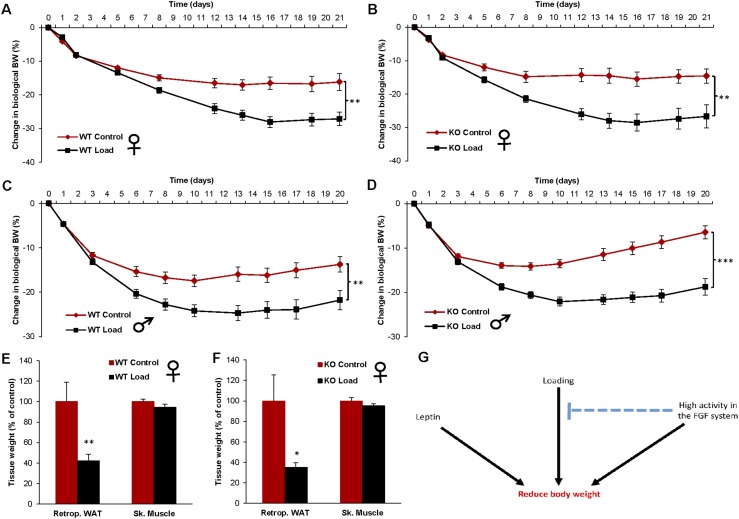Figure 4.
The homeostatic regulation of BW and body fat by loading is functioning in FGF21 KO mice. The effect of loading on BW changes in (A) WT female mice (control n = 10, and load n = 10), (B) FGF21 KO female mice (control n = 9, and load n = 10), (C) WT male mice (control n = 10, and load n = 10), and (D) FGF21 KO male mice (control n = 9, and load n = 10). The effect of loading on tissue weights in (E) WT female mice and (F) FGF21 KO female mice at day 21 after capsule implantation. Data are expressed as means ± SEM. *P < 0.05; **P < 0.01; ***P < 0.001. (G) Proposed interactions among leptin, increased loading, and the FGF system for the regulation of BW. Previous studies demonstrate that both loading and the FGF system have the capacity to regulate BW, independent of leptin (8–10). In the current study, we demonstrate that high activity in the FGF system, induced by overexpression of FGF21, blocks the BW-reducing effect of loading. In contrast, the effect of leptin on BW was not affected by altered activity in the FGF system, supported because overexpression of FGF21 did not affect the leptin response. However, FGF21 is not mediating the loading response, supported by a normal loading response in FGF21 KO mice. We propose that both the gravitostat and the FGF system regulate BW, independent of leptin, and that pharmacologically enhanced activity in the FGF system reduces the sensitivity of the gravitostat. Retrop., retroperitoneal; Sk. Muscle, skeletal muscle (musculus gastrocnemius).

